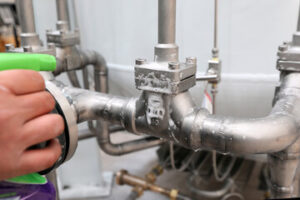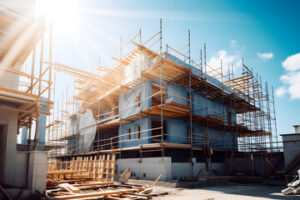Overgrown weeds and bushes can make a property look unsightly. They can also block sunlight and cause soil erosion. Land Clearing helps to remove these plants and promote healthy growth on a lot.

Clearing a site requires many factors to be considered. First, the contractors must inspect the site to determine its size and type of vegetation.
Land clearing can be expensive, but it is an essential part of preparing property for construction or agricultural use. It removes unwanted vegetation that prevents the soil from absorbing nutrients and makes it difficult for other plants to grow. Clearing also helps to increase the property value by making it more attractive. However, this process can be complex and time-consuming, so it is best left to professionals.
The cost of land clearing depends on the type and quantity of materials removed. It also depends on the size of the property and the terrain. Larger plots of land require more equipment, and will therefore be more costly to clear than smaller plots. Additionally, different materials require varying degrees of preparation and care to ensure that they are not damaged or contaminated during the clearing process.
One of the most popular methods for clearing land is chemical removal or controlled burning. These techniques are highly effective, but they can be dangerous and may be forbidden in some areas. In addition, they can be disruptive to the local ecosystem and may leave a significant environmental impact.
Other types of land clearing practices include grubbing and mulching. These are less invasive and more environmentally friendly methods, but they require extensive labor. They also take more time to complete than mechanical methods.
Other costs to consider when planning a land clearing project are disposal fees and permit requirements. Depending on your location, you may need to obtain permits for environmental impact assessments or wetland protection. You may also need to pay fees for site preparation or grading. These fees should be incorporated into your budget from the outset, as they can significantly increase your overall project cost. In some cases, these fees may be covered by your homeowner’s insurance policy. It is important to check with your provider to see if they offer this service. In addition, it is essential to contact 811 before starting any work on your property. This will allow a utility company to come out and mark the locations of underground utilities before you disrupt them.
Techniques
Land clearing involves removing trees, stumps, brush, and other debris from a site. It is a crucial first step in construction and development projects, as it provides a clean surface for building foundations and roads. It also helps prevent problems with uneven settling and structural damage. In addition, land clearing prepares the ground for landscaping and agricultural use.
The first step in land clearing is evaluating the area to determine the scope of work, terrain type, and environmental considerations. It is important to note any features that should remain untouched, such as protected trees or water sources. This information can be used to develop a clear and detailed plan for the project. It can also help to avoid any penalties or fines for breaking local environmental and zoning regulations.
There are a variety of techniques for land clearing, including manual and mechanical methods. Manual clearing uses hand tools to remove small vegetation and tree limbs. It can be more precise than using heavy machinery, and is ideal for sensitive areas where clearing could damage the surrounding environment. Mechanical clearing uses equipment like bulldozers and excavators to clear large areas quickly. This method is more efficient than manual clearing, but it requires skilled operators to avoid damaging the soil. In some cases, herbicides are used to kill unwanted vegetation.
Once the land has been cleared, it must be inspected and cleaned to ensure that all materials have been removed. Any debris that cannot be reused or recycled is hauled away for disposal. In some cases, the land may be seeded and mulched to promote grass growth and protect against erosion. Erosion control barriers may also be installed to reduce the risk of soil displacement and pollution.
While land clearing is essential for a wide range of applications, it is crucial to take safety precautions to protect workers and the environment. This includes assessing the site for risks and hazards, providing training and safety equipment, and maintaining a safe working environment. It is also essential to follow all environmental regulations and permits. This will ensure that the work is conducted in a sustainable manner and does not impact the environment or wildlife habitats.
Safety
Land clearing involves heavy machinery and falling debris, so it’s important to protect workers from potential injuries. Safety protocols ensure that personnel follow strict guidelines and wear appropriate personal protective equipment. This includes hard hats, safety goggles, and gloves. It also requires regular inspection and maintenance of machinery to minimize accidents.
Safety measures also help prevent environmental damage and protect biodiversity. For example, proper disposal of debris prevents soil erosion and protects water bodies from contamination. It is also essential to conduct a thorough site assessment before starting the work. This will identify any hazards such as unstable trees, underground utilities, and wildlife habitats.
Another important factor to consider is the type of equipment used in land clearing. Different machines are better suited for different types of vegetation. For example, a brush cutter is an ideal tool for small shrubs and grasses, while a chainsaw is best for larger trees. For larger projects, a bulldozer or excavator may be necessary to remove large tree stumps and roots. Choosing the right equipment will help reduce costs and make the process more efficient.
Proper land clearing is vital to building structures and creating beautiful landscapes. It also prevents pests from inhabiting the area, making it a safer place for people to live and travel. Clearing land also helps plants and trees thrive by ensuring that they have access to sunlight. Old, dead plant material is a natural source of nutrients for new growth. In addition, clearing the land will remove invasive species and other unwanted plants that could harm natural biodiversity.
Land clearing is a complicated task, but it can be done safely by following the right safety measures. These include conducting a risk assessment, identifying underground utilities, and developing a clear plan of action. It is also important to follow local regulations and use sustainable practices. For example, a silt fence or berm can be used to control erosion and prevent soil runoff into nearby streams. In addition, a detailed debris disposal plan should be put in place to reduce the impact of clearing on local ecosystems.
Environmental impact
Clearing land is a necessary part of many development and agricultural projects. However, it can also have a major environmental impact. It can result in soil erosion, wildlife habitat loss, a decrease in crop yields, and a buildup of salt in the soil. These negative effects can have long-term economic and social consequences for the local community. To mitigate these impacts, it is important to choose an environmentally responsible clearing service. This can help reduce the risk of pollution and wildlife habitat disruption.
Land clearing can be done using various techniques, including controlled burning, cutting, and mulching. The latter can be more environmentally friendly than other methods, but it can still cause harm to the environment if it is not performed properly. The right technique and equipment can ensure that the environmental impact of clearing land is minimized. Choosing a qualified provider is important, as they can use the latest technology to perform clearing in an efficient and effective manner.
One of the biggest challenges with clearing land is ensuring that it does not cause environmental damage. This can be difficult, especially in areas that are prone to wildfires or flooding. One way to minimize the environmental impact of land clearing is by utilizing specialized machinery that can be operated remotely and is less damaging to plants and animals. Another method is by removing dead and overgrown trees, which can be a fire hazard for the surrounding area.
Lastly, land clearing can be used to improve water quality by reducing nutrient and sediment runoff. This can be particularly helpful in areas with limited freshwater supplies. It can also be used to prepare land for renewable energy projects, such as solar and wind farms. In addition, clearing land can help prevent the spread of invasive species.
Clearing land is essential for a number of reasons, including construction, agriculture, and livestock production. For example, if you’re building a home or commercial building, you may need to clear the land in order to lay foundations and install utilities. In some cases, it’s even required before construction can begin. Clearing the land can also make it easier to access for agriculture and farming purposes. It removes obstacles like bushes, limbs, and rotted tree stumps.



